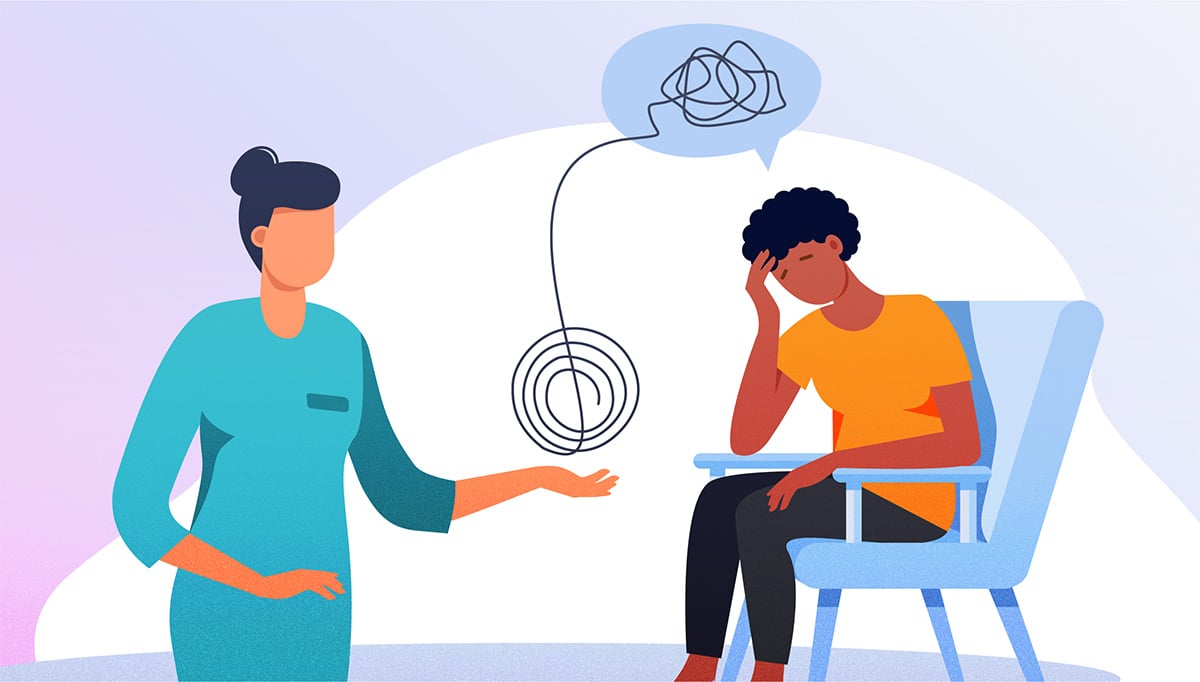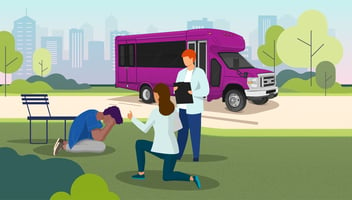

American healthcare has a rich and complex history, with many changes and evolutions over time. For much of its history, healthcare focused primarily on physical health, with little attention paid to behavioral health. However, in recent years, this has begun to change. Behavioral health is finally coming to the forefront of public health discussions and initiatives.
The History of Behavioral Health
According to the Substance Abuse and Mental Health Services Administration (SAMHSA), behavioral health is "the promotion of mental health, resilience, and wellbeing; the prevention of mental and substance use disorders; and the treatment and support of mental and substance use disorders to improve health and wellness." This encompasses a wide range of issues, from anxiety and depression to substance use and addiction.
Behavioral health gained more exposure during the COVID-19 pandemic, as people around the world have struggled with increased stress, anxiety, and other mental health challenges.
Suicide is an Epidemic
In the United States, mental health issues have been on the rise for years, with suicide rates increasing steadily over the past two decades. In fact, suicide is now a leading cause of death in the United States, with over 48,000 deaths by suicide reported in 2018 alone.
The importance of addressing behavioral health goes beyond just the individual who is struggling. Mental health issues can have a ripple effect, impacting not only the person in crisis but also their family and friends. This is why it is critical to prioritize behavioral health and ensure that everyone has access to the care and support they need.
The Evolution of 988
One step in this direction is the implementation of 988. In 2018, the Federal Communications Commission released a report that recommended the establishment of a three-digit hotline for mental health crises, similar to the 911 emergency hotline. This report highlighted the significant gaps and inadequacies in the current system for responding to mental health crises and emphasized the need for a dedicated hotline to provide more immediate and appropriate care.
This study was completed in August 2020 and concluded that a three-digit number, like 988, would be the most effective and efficient way to connect people in crisis with the appropriate support and resources.
988 is a significant improvement over the previous system, which relied on the 911 emergency hotline for all crises, including behavioral health emergencies. The inadequacies and gaps in care with that system were clear, from long wait times in emergency rooms to a lack of follow-up care for those who sought help.
988: A Great Start, But What Next?
While 988 is a great start, it is just that – a start. There is much more that needs to be done to ensure that people receive the care and support they need in the aftermath of a behavioral health crisis. This is where BusTest Express and Mobile Crisis Response Teams (MCTs) come in.
BusTest Express is a vital component in supplementing the 988 system, as it connects people in need with the right resources and providers. This includes connecting people with mobile crisis intervention and support, and it also encompasses follow-up and recovery care. Mobile Crisis Response teams consist of trained mental health professionals who can respond quickly to people in crisis and provide them with the care and support they need.
The benefits of MCTs are many. By connecting people with Mobile Crisis Response Teams and other resources, BusTest Express will help reduce overcrowding in emergency rooms, providing a safe and appropriate environment for those in crisis. Mobile health and wellness solutions also provide a constant source of support, which is critical for people struggling with both physical and mental health issues. Most importantly, BusTest Express’ Mobile Crisis Response Teams can help reduce the risk of relapse and recurrence, providing ongoing support and aftercare to people in need.
As the United States continues to prioritize behavioral health, it is essential that we focus not just on crisis intervention but also on prevention and ongoing support. This means providing people with the resources they need to manage their mental health and well-being, connecting them with trained professionals who can offer support and guidance, and breaking down the barriers that prevent people from seeking help when they need it.
If you are interested in learning more about how to help supplement the 988 system and improve access to behavioral health care and support in your community, BusTest Express is here to help.
We’ll work with you to build and deploy your community’s Mobile Crisis Response fleet, and change the course of behavioral healthcare in the United States and beyond.
Topics: 988, Behavioral Health, Healthcare Equity, Mobile Crisis Teams
Related Posts

How Mobile Crisis Teams Complete the Behavioral Health Continuum
The issue of behavioral health in the United States has been a growing concern in recent years. However, the elements of behavioral health– substance...
Read more »
Tailoring MCT Services to Serve Both Rural and Urban Areas
Access to medical and behavioral healthcare is a long-standing challenge in the United States. Unique challenges in rural and urban areas make it a...
Read more »